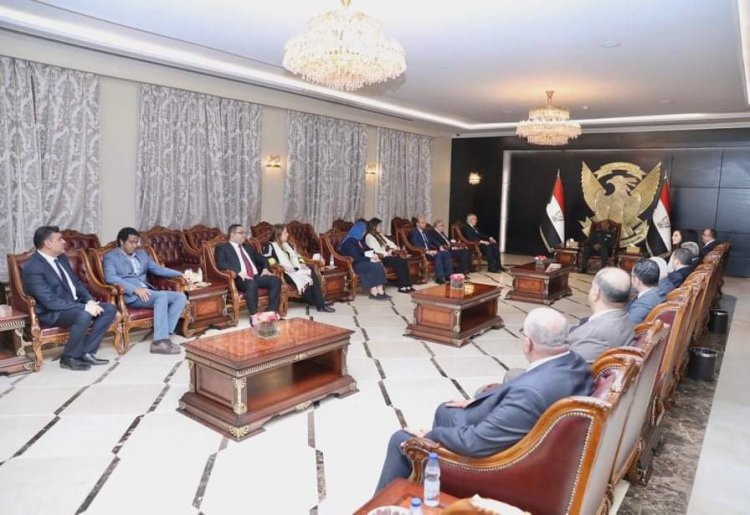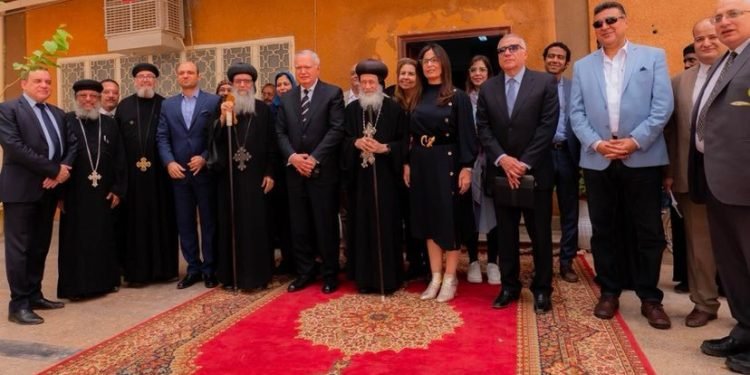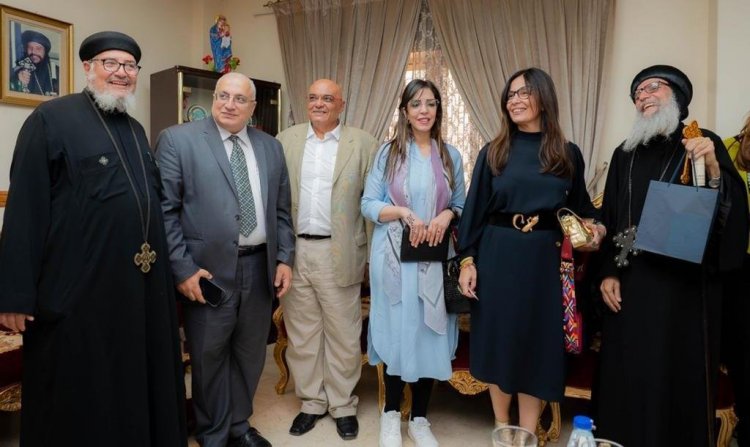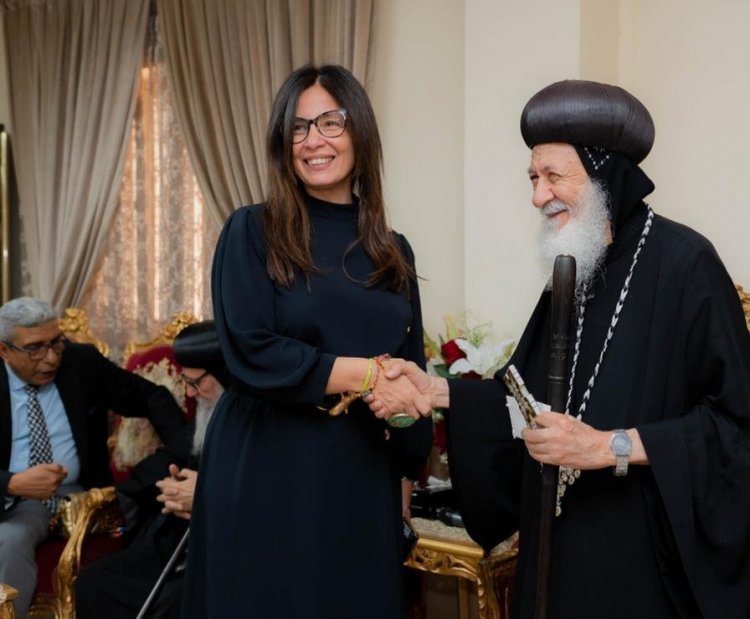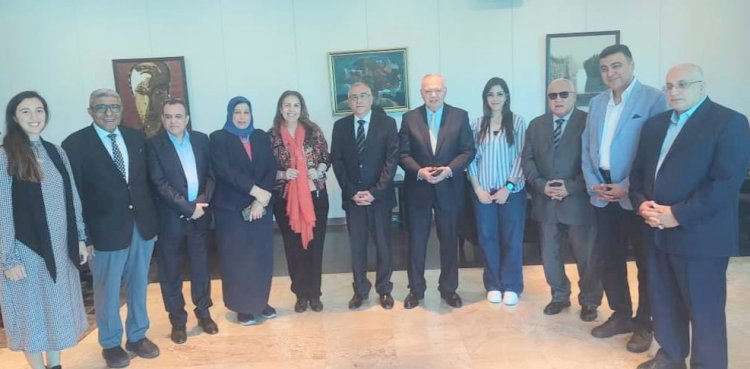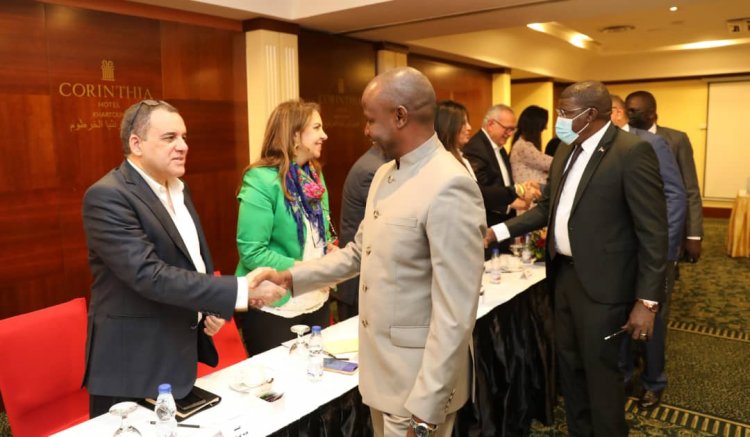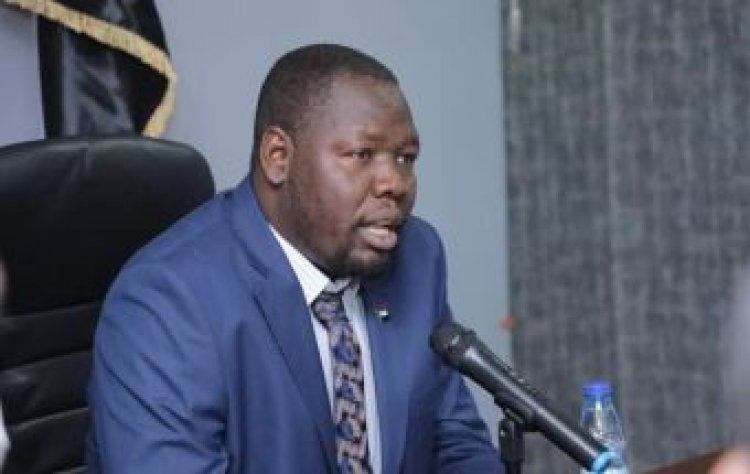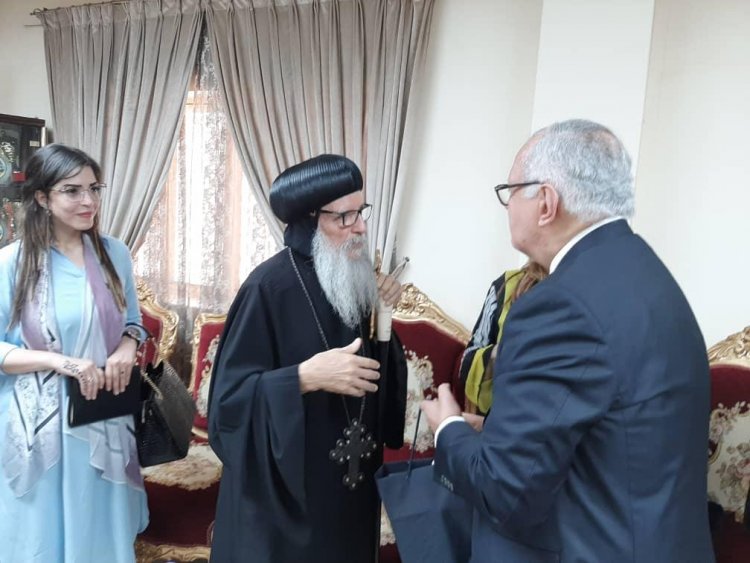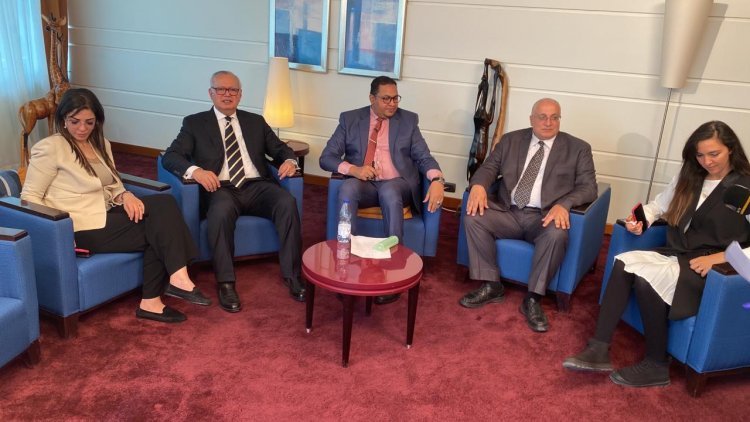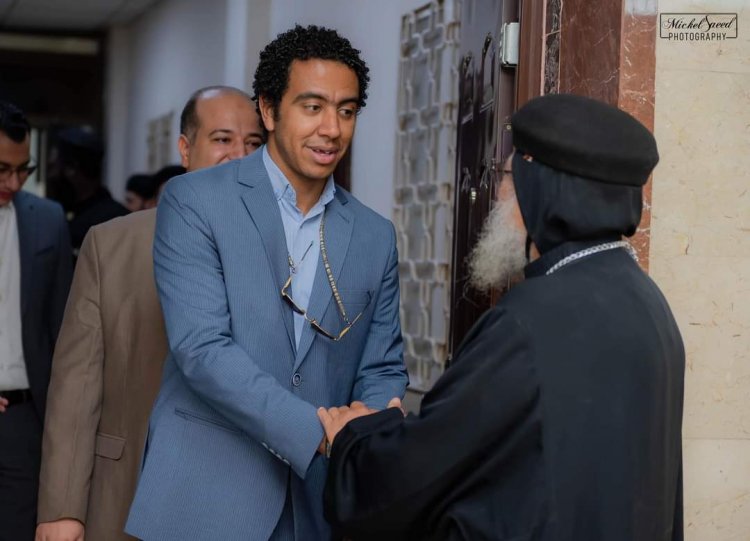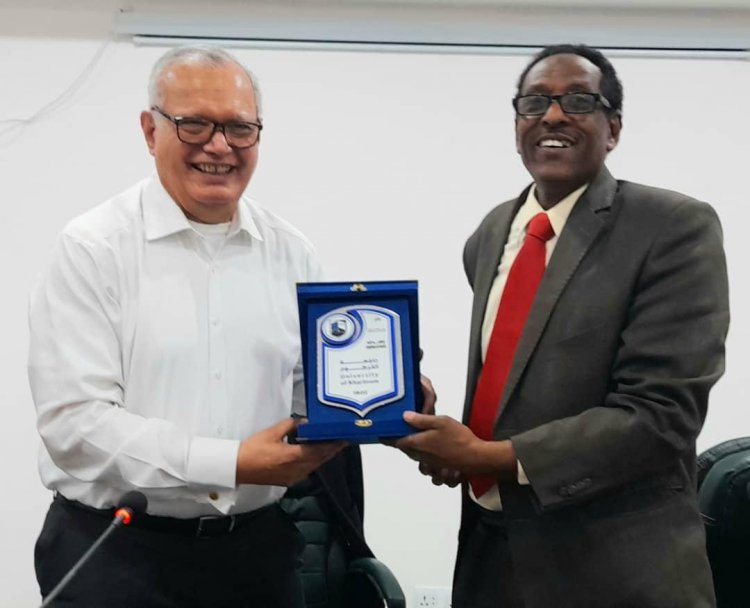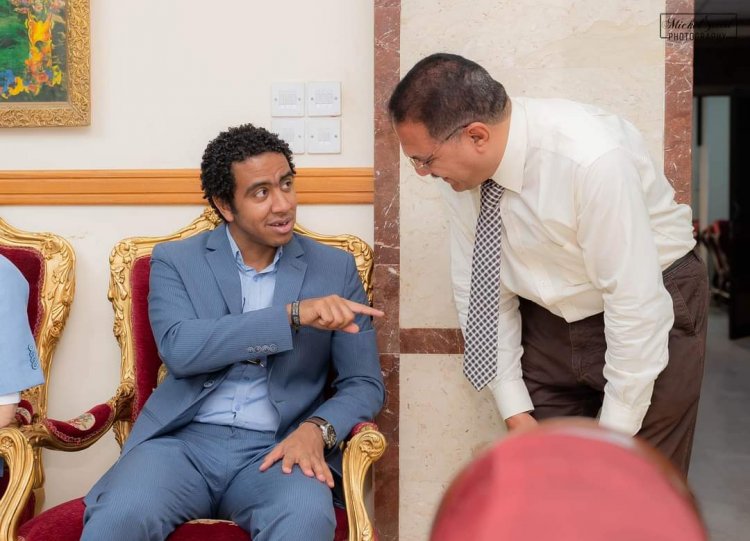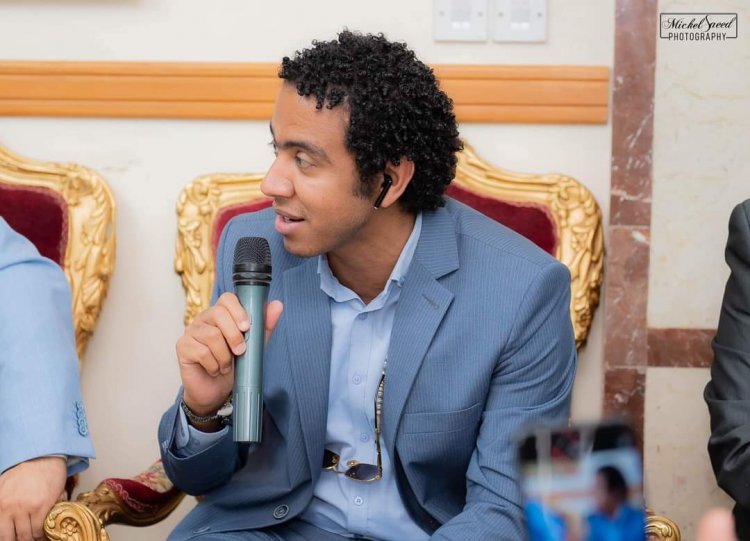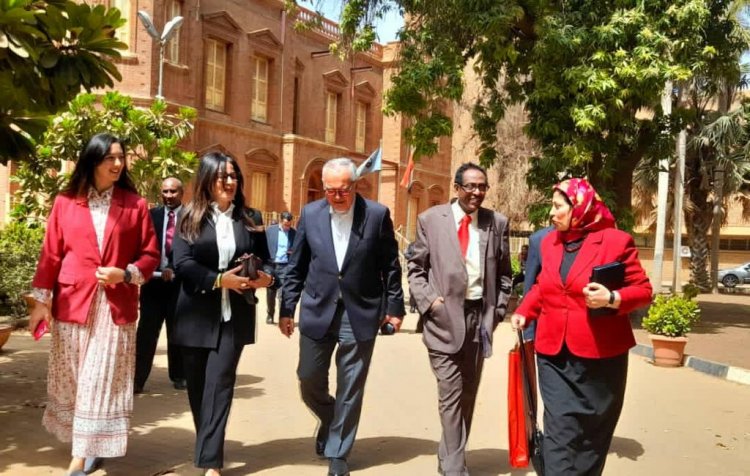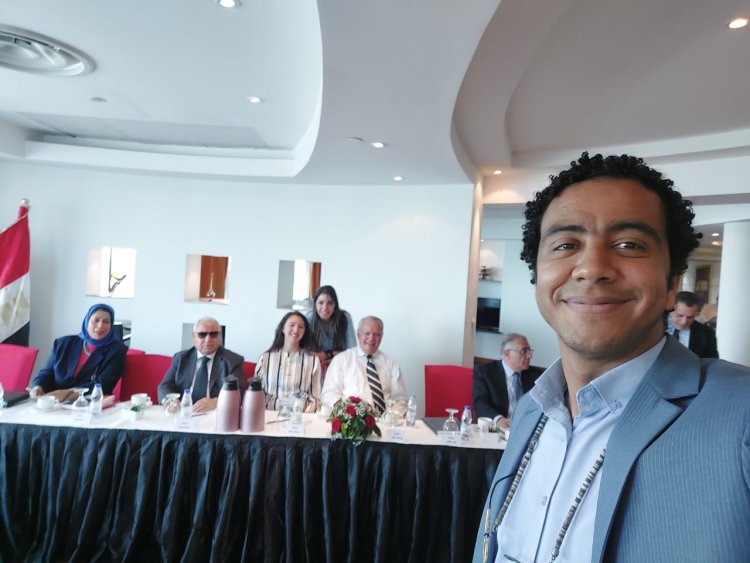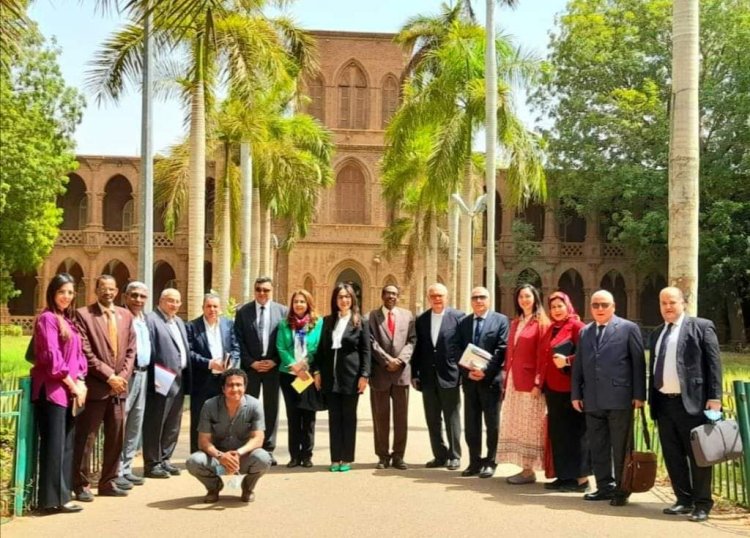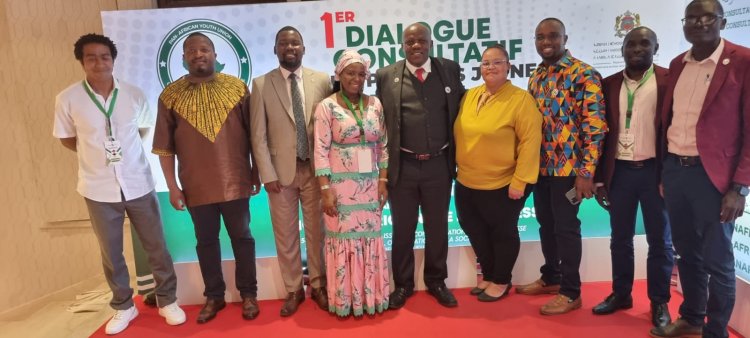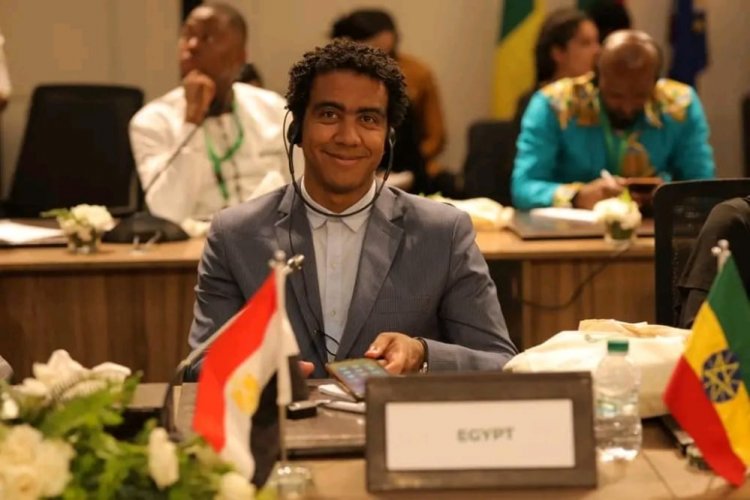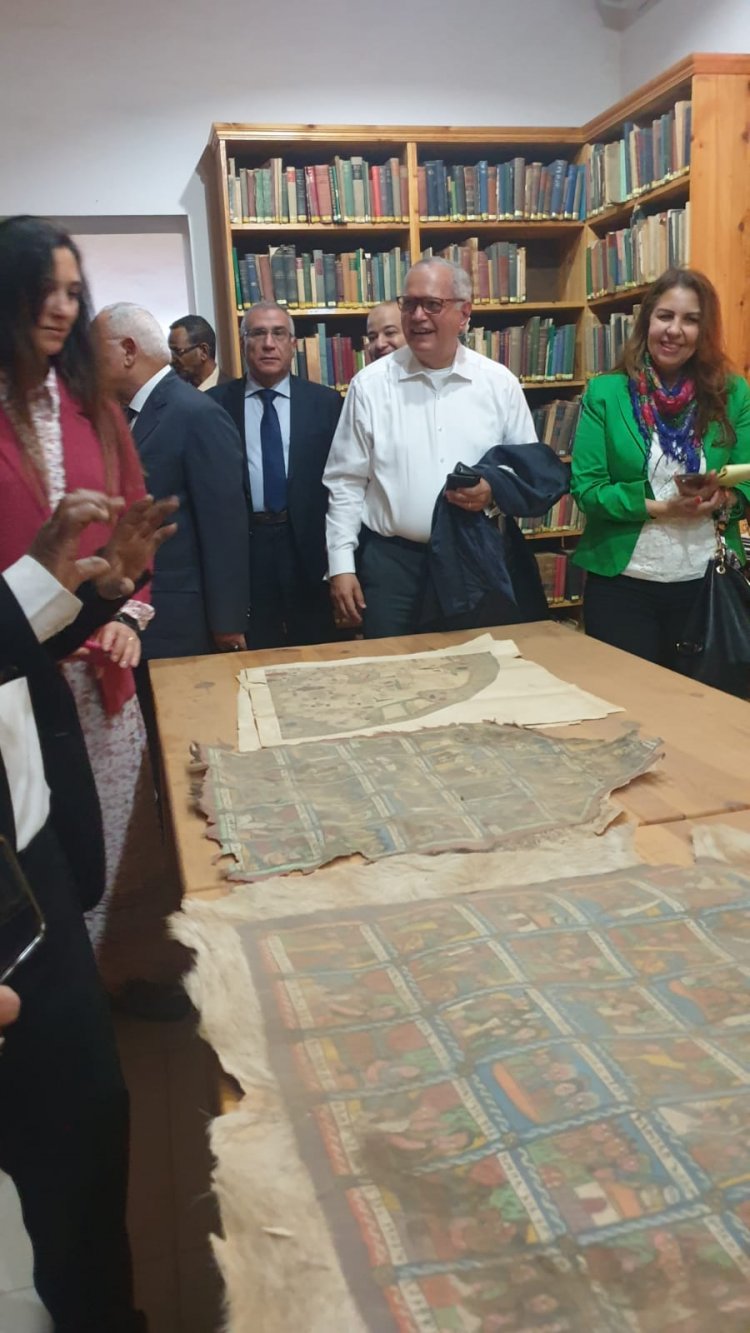Ghazaly meets with Al-Burhan and the Sudanese Revolutionary Fronts (SRF)
Young activist Hassan Ghazaly, founder of the Nile Valley Unity Project "Future Visions," and founder of the Nasser Youth Movement, participated in a delegation of the most prominent leaders of civil society institutions and organizations, with diplomatic, academic, political and media backgrounds concerned with African affairs in Egypt, heading to Sudan. This took place during the period from 10 to 13 May 2022, in order to launch an (Egyptian-Sudanese) dialogue, as this comes out of the current circumstances, and the serious challenges. These challenges are imposed by those circumstances, which require all actors in the Egyptian and Sudanese political scenes to play their assigned roles to consolidate the bonds of relations and bring the two brotherly peoples closer together.
In this context, the delegation included His Excellency Ambassador Mohamed Al-Orabi, the former Minister of Foreign Affairs, His Excellency Ambassador Dr. Mohamed Badr El-Din Zayed, the former Assistant Minister of Foreign Affairs for Neighboring Countries Affairs, Dr. El-Sayed Fleifel, a former member of the House of Representatives, and the former Dean of the College of African Studies. Included in the delegation were also Dr. Jihan Zaki, member of the Foreign Affairs Committee of the House of Representatives, and former President of the Academy of Arts in Berma, Dr. Hadia Hosni Al-Saeed, member of the House of Representatives for the Coordination of Youth Parties and Politicians, Dr. Nevin Massad, Professor of Political Science at Cairo University, Dr. Sameh Fawzy, Senior Researcher at the Bibliotheca Alexandrina, Minister Galal El-Sawy, the expert in economic affairs, and the former commercial advisor in Sudan. Moreover, the delegation presented a group of journalists and media professionals, including: Asmaa Al-Husseini, editor-in-chief of Al-Ahram newspaper, and journalist Ezzat Ibrahim, editor-in-chief of Al-Ahram Weekly, official spokesman for the National Council for Human Rights, writer and expert, journalist Dr. Yasser Abdel Aziz, and journalist writer Samar Ibrahim, the official of the African file in Al-Shorouk newspaper.
Amid a warm reception for the Egyptian delegation by all the political forces in Sudan, Lieutenant-General Abdel Fattah Al-Burhan, Chairman of the Transitional Sovereign Council, was keen to receive the delegation, accompanied by Ambassador Hossam Issa and Consul Ahmed Adly. This reception indicates that clarity in the strategic vision of the Egyptian people towards Sudan is matched by a similar clarity of the Sudanese people at the same degree of depth and solidity. In addition to this, the aspirations of the Sudanese people are no less than the aspirations of the Egyptian people to build exemplary relations and a real strategic partnership.
Amidst a cordial atmosphere and a warm welcome, the ceremony of receiving the Egyptian delegation from the Sudanese side took place. It was a part of a press conference, in the presence of a group of Sudanese leaders of senior statesmen, leaders of youth councils, and a number of prominent figures in Sudanese society, including: Professor Ali Shammo, former Sudanese Minister of Information, Dr. Qassem Badri, President of Al-Ahfad University, Dr. Abdul Qader Salem, President of the Musicians Union, Sudanese artist Sherine El-Sayed, His Excellency Ambassador Ali Jajarin, President of the Football Players Association, Othman Mirghani, editor-in-chief of Al-Tayyar newspaper.
This is in addition to a number of media professionals and journalists, including the journalist Ammar Sheila, director of the Blue Nile channel, Lina Yaqoub, director of the office of Al-Arabiya channel in Sudan, Fatima Al-Sadiq, director of Al-Balad channel, Amr Abdel-Muttalib, head of the Shura Council of the Ababda tribe, Pastor Timo South, representative of the Coptic Church, Assem Al-Bilal, editor-in-chief of Akhbar Al-Youm newspaper, Sudanese artist Hanan Blueblo, writer and journalist Shawky Abdel-Azim, El-Shazly Abdel-Majeed, president of the Nubian Club, Abdel-Baqi Jbara, head of the Electronic Press Union, writer and journalist Magdy Abdel Aziz, Sudanese artist Saif Al-Jamaa, plastic artist Dr. Rashid Diab, Sudanese poet Mustafa Wad Al-Mamoor.
In a related context, over the course of two days this May, the Egyptian delegation was able to hold meetings with all the political and revolutionary forces on the Sudanese side, to resolve the Sudanese political crisis. The delegation began the first meetings of the leaders of the Revolutionary Front, which put forward an initiative to solve this crisis and unravel its complexities. The delegation also met with the leaders of the Supreme Council of Civil Councils, the leaders of the Sufi orders, the Coordination of the Revolution Committees, and representatives of the National Charter for Silk and Change, in addition to their visit to the headquarters of the Egyptian Coptic Church. This was achieved in addition to holding several meetings with the President of the University of Khartoum, presidents of Sudanese universities, leaders of student unions, and organizations of families of the martyrs of the Sudanese revolution. The delegation discussed ways to cross the transitional phase, in addition to discussing ways to strengthen Egyptian-Sudanese relations, and the possibility of opening new outlets and portals for cooperation between the two brotherly countries.
Within the framework of the Egyptian delegation’s visit to the Coptic Orthodox Church, which is one of Egypt’s homes abroad, the delegation was received by fathers and priests in the church, among them: Anba Elia, Bishop of Khartoum and its dependencies, Anba Sarapamon, Bishop of Omdurman and its dependencies, and Father Philothos Faraj, priest of the Church of the Two Martyrs in Khartoum, the Committee of the Virgin Church in Khartoum and the Committee of St. George Church in Omdurman.
The Egyptian delegation also met during its visit to the University of Khartoum. It was received by the University President, Professor Imad Al-Din Al-Amin Al-Taher Ardeeb, the Secretary of Scientific Affairs, Professor Adel Ali Al-Hussein, in the Office of the Rector of the University. The visiting delegation also held a consultative meeting with the Federation of Sudanese Universities, hosted by the Khader Al-Sharif Hall of the Scientific Affairs Secretariat of the University of Khartoum, with the participation of a group of Sudanese university directors. The two sides discussed means of cooperation and integration between the University of Khartoum and Egyptian universities. The session also came up with several recommendations to promote and develop bilateral relations between higher education institutions in the two countries.
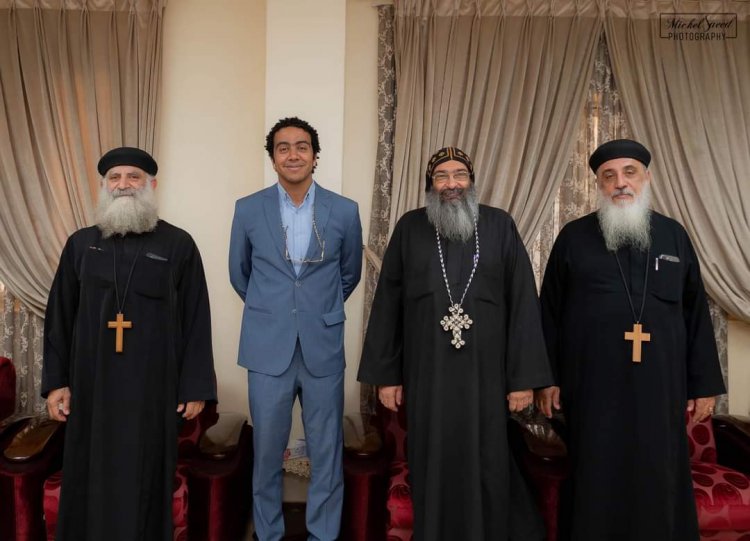
On the sidelines of the visit, the delegation participated in a cultural and artistic evening, at the Rashid Diab Center for the Arts, in the western suburb of Al-Jarif, where the members of the Egyptian delegation appeared in the Sudanese national dress, where the men wore the galabiya and the aunt, while the members of the delegation, university professors and journalists, were adorned with the Sudanese dress.
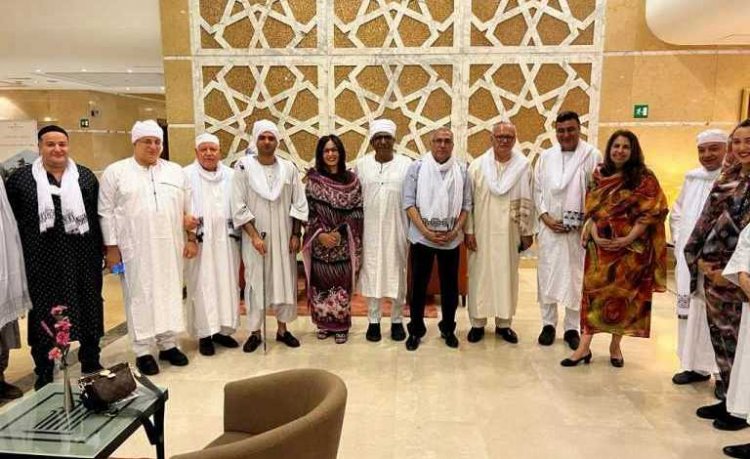
For his part, Hassan Ghazaly, a member of the Egyptian civil delegation, and founder of the Nile Valley Unity Project "Future vision" extended his thanks and appreciation to the Sudanese side for the warm reception, expressing his gratitude and thanks in particular to the Egyptian Consulate and the Egyptian Embassy in Khartoum for coordinating the visit and the meetings at a high level, high accuracy and professionalism. He also praised the richness of the discussions and meetings held, stressing the depth, solidity, and consolidation of Egyptian-Sudanese relations at the official diplomatic level. Finally, he pointed out that building on those relations between the two countries, and investing them within the framework of civil and institutional society is of a highly urgent importance.
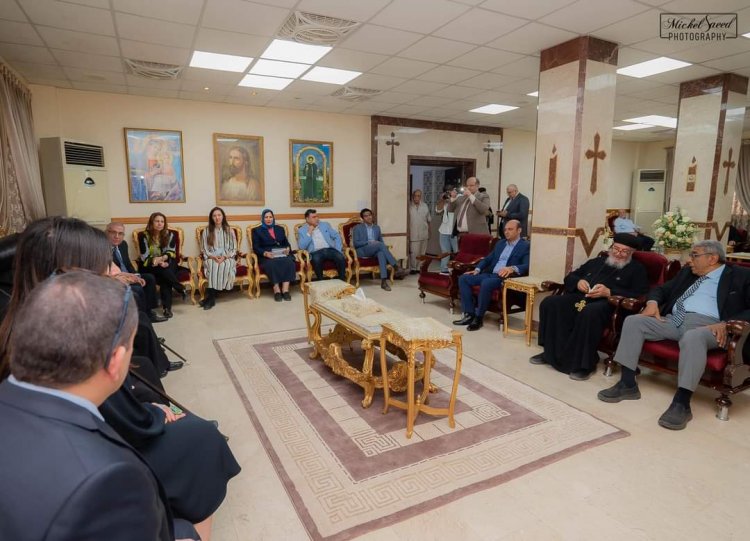
Ghazaly concluded, stressing the importance of strengthening the role of civil society as an incubator for official and institutional relations. He highlighted the prominent role of civil society in supporting close popular ties, noting that we are in dire need in the immediate period of interaction and interdependence of Egyptian civil society and Sudanese society. It's worth mentioning that these points come as the most important themes that were discussed during the various meetings between the two sides, and the most requested by representatives of the Sudanese society. He also stressed that the well-established Egyptian-Sudanese historical relations can be a supportive mechanism for interaction and harmony between civil society in the two countries.

